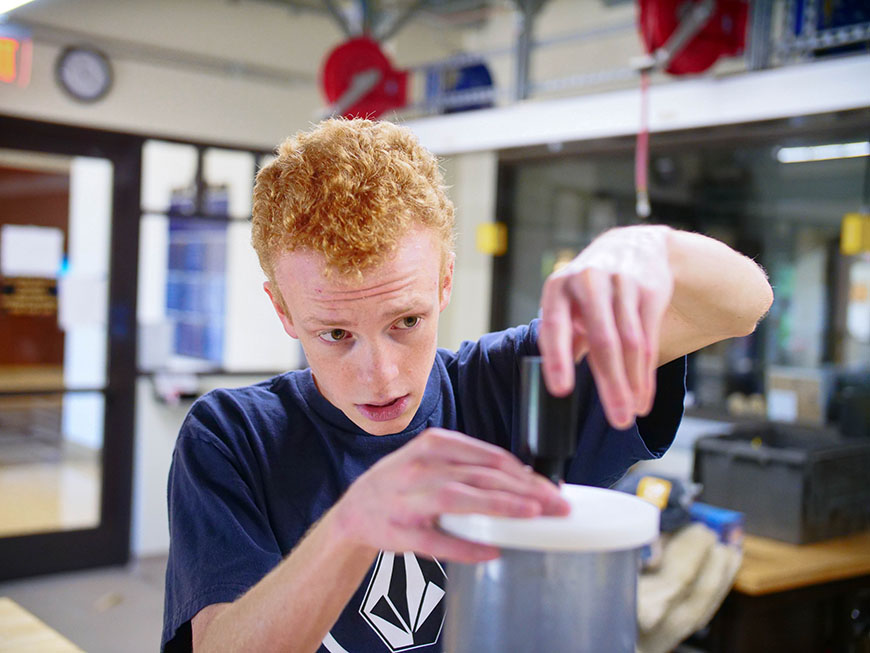Research in Rewind: Filtering Bacteria Through Coniferous Plants
SURE student looks to improve access to clean drinking water

“A lot of places lack access to clean water — this solution has implications worldwide for billions of people,” says Christopher Angelo.
Angelo, a fourth year mechanical engineering student in the Shiley-Marcos School of Engineering, used his Summer Undergraduate Research Experience (SURE) to help improve on a prototype that uses conifers to filter bacteria and toxins out of ground and surface water.
SURE is an educational summer research program that supports USD undergraduates to engage in research, scholarly activities and creative works for up to 10 weeks during the summer.
Angelo explains that there are two types of plants — conifers and flowering plants. Branches on a coniferous plant have a series of weaving channels that help transport sap throughout. There is a larger surface area of the branch taken up by these channels, creating an ideal mechanism for filtration, he says.
“As the sap is transported, it passes through pits that actually filter air bubbles out. We can use those pits to filter coliform bacteria — bacteria found in fecal matter — out at a pretty high success rate.”
Professor Frank Jacobitz, PhD, chair of the mechanical engineering department, was Angelo’s mentor during the summer research. The project has been done in phases, with Angelo picking up where his peers left off and hoping to improve on their designs.
The roughly one-inch-long conifer samples are put into an airtight tube structure that allows water to pass through and be collected in a bottle.
While there are many places worldwide that lack access to clean drinking water, the project’s target area is Uganda. A target area is necessary in the research because it allows the researchers to know what materials can be sourced locally, Angelo says.
“The goal is to have a system that can be assembled on-site, ideally adhering to green engineering principles,” says Angelo.
These principles include limiting material diversity, using materials that aren’t toxic, like glues and sealants, having a system that can be manufactured locally to create jobs and the ability to filter at least four liters of water per day (which is the World Health Organization’s standard for water filtration).
Angelo plans to extend his research this school year and focus it for his Senior Capstone project. Ideally, the filtration system will be complete by next year, he says.
“What’s nice about this project is it’s very interdisciplinary by nature — it blends mechanical engineering and the design process, it blends environmental engineering by considering the environmental implications this would have and it also involves systems engineering by looking at the process as a whole.”
Following graduation, Angelo plans to pursue a master’s degree in environmental engineering.
“I like knowing the work I’m doing could help the environment if I’m able to create something sustainable,” he says. “It helps motivate me.”
— Story and photos by Matthew Piechalak
Welcome to Research Month 2024 at the University of San Diego! Research Month is an annual opportunity to showcase the diversity of topics and projects taking place across campus. This year, as we proudly celebrate 10 years of research excellence, we also take a look back at some of the great research-based stories that have been told in recent years. This story originally appeared in USD News Center in September 2022.



